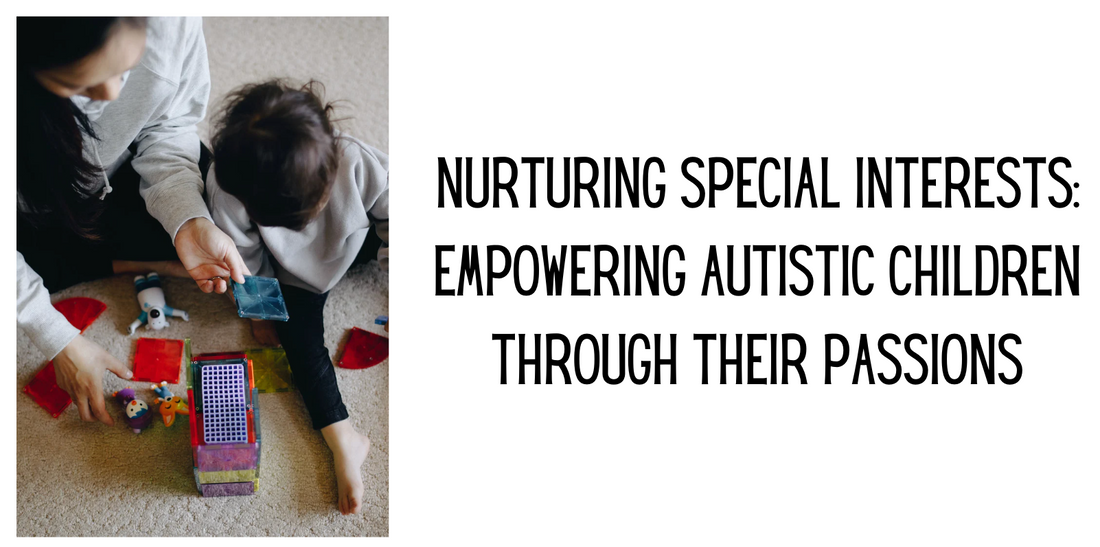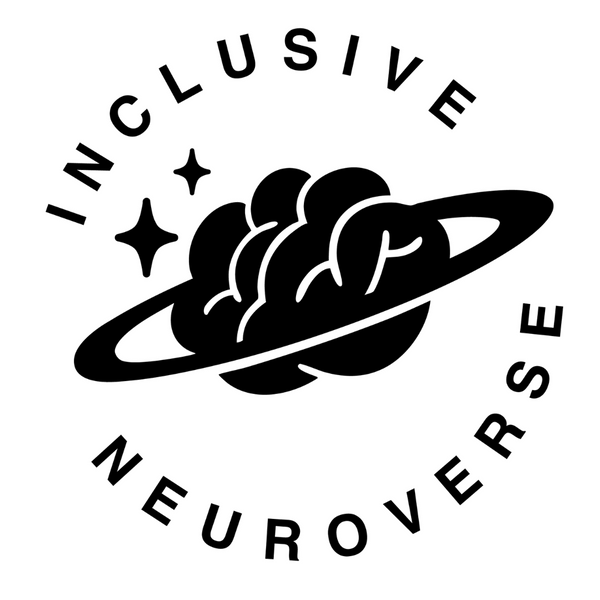
Nurturing Special Interests: Empowering Autistic Children Through Their Passions
Share
Autistic children often exhibit intense and focused interests in specific topics, known as special interests.
Their interests play a crucial role in their development, providing a source of joy, comfort, and skill-building. Understanding and supporting these special interests can enhance a child's self-esteem, communication, and overall well-being!
Recognizing the Importance of Special Interests
Special interests are more than just hobbies for autistic children. These interests serve as windows into their world, offering a way to connect with their environment and freely express themselves. These interests can also provide a sense of predictability and stability in a world that may feel overwhelming at times.
Encouraging Communication
Special interests can act as powerful communication tools. Children may find it easier to express themselves through their passions rather than traditional forms of communication. Encourage your child to share information, facts, and stories related to their interests, as this can lead to meaningful interactions and connections.
Embracing Learning Opportunities
Special interests often involve in-depth learning. Capitalize on your child's enthusiasm by incorporating their passion into educational activities.
For example, if a child is fascinated by trains, use train-themed math problems or story-writing exercises to make learning engaging and enjoyable.
Providing a Safe Space
Create an environment where your child's special interest is respected and embraced. Make it clear that their passion is valid and valued, even if it's something others might not understand. This safe space can boost their self-esteem and encourage them to explore their interests without fear of judgment.
Engaging Social Opportunities
Special interests can become a bridge for social interactions. Encourage your child to connect with peers who share similar interests. Participating in clubs, online forums, or local events related to their passion can help them form friendships and feel a sense of belonging!
Balancing Flexibility
While it's important to encourage special interests, also encourage a degree of flexibility. Introduce new experiences and interests gradually, helping your child develop a broader range of skills while still honoring their primary passion/special interest.
Incorporating Special Interests into Daily Life
Find ways to integrate your child's special interest into everyday routines. This can include incorporating their interest into chores charts, relaxation techniques(like yoga or brain breaks), or sensory regulation strategies.
Celebrating Achievements
Celebrate milestones and achievements related to your child's special interest. Whether it's mastering a new skill, creating something, or sharing their knowledge, acknowledging their accomplishments can boost their confidence and motivation.
Seeking Professional Guidance
Consult with educators, therapists, or specialists who are knowledgeable about autism and its relationship with special interests. They can provide tailored strategies to support your child's unique needs and development.
Being an Active Participant
Show genuine interest in your child's passion. Ask questions, engage in conversations, and participate in activities related to their interest. Your involvement demonstrates your support and reinforces their sense of connection.
Special interests are not just fleeting hobbies; they are a fundamental part of an autistic child's identity. By fostering an environment that values and encourages these passions, we empower children to embrace who they are and develop essential skills. Through patience, understanding, and active engagement, we can help autistic children thrive as they explore the world through the lens of their special interests!
